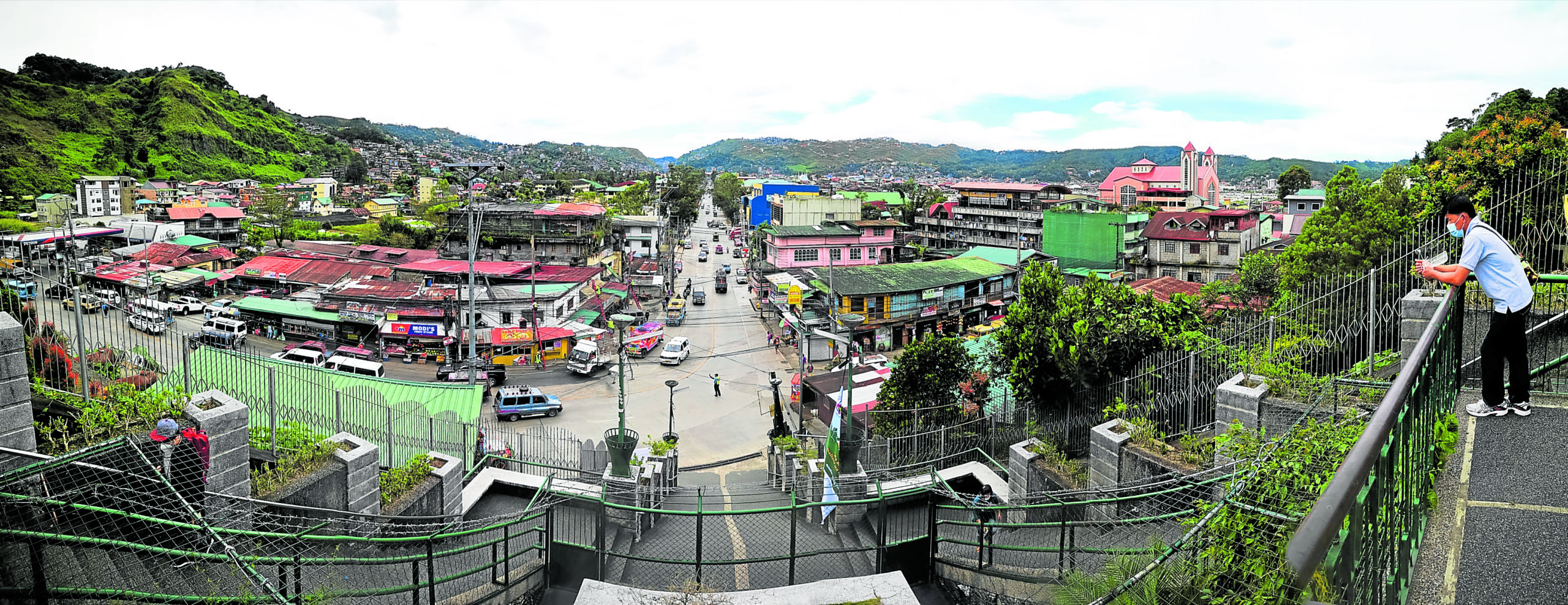Baguio tightens border control anew as COVID-19 cases rise in nearby towns

BAGUIO’S NEIGHBOR Traffic along the main road of La Trinidad, the provincial capital of Benguet and a major vegetable trading hub in the Cordillera, is unusually light in this photo taken last month. Many La
Trinidad residents regularly travel to nearby Baguio City for work, business, education and leisure but city officials say they will impose tighter border checks to contain the spread of COVID-19. —EV ESPIRITU
BAGUIO CITY—The city has again restricted entry of people coming from neighboring towns beginning Nov. 21 due to reports of Benguet province’s inadequate testing for the coronavirus.
But Mayor Benjamin Magalong on Wednesday said the city government would continue helping Benguet with test kits and manpower for contact tracing to contain the spread of the virus.
Health workers have yet to determine the full scope of transmission in Benguet, partly because of a reluctance to conduct expanded testing, according to Magalong.
“More Benguet residents travel regularly to Baguio so controlling our borders would cut down the risk,” he said. Those who could not prove that they were not infected with the virus will be denied entry, he added.
Arrangements were being made regarding workers who live in Benguet, including Itogon and Tuba towns where the virus spread in mining communities last month.
Article continues after this advertisementBenguet recorded 15 new cases on Nov. 16, which raised its total number to 1,767. Among the new cases were eight people who were exposed to carriers in Itogon.
Article continues after this advertisementFree movement
Baguio used to allow free movement for residents of five Benguet towns that are part of an economic collaboration called BLISTT (acronym for Baguio and nearby La Trinidad, Itogon, Sablan, Tuba and Tublay).
“So they came in and out without the necessity of submitting to triage [until this week],” Magalong said. But new tests conducted from Nov. 5 to Nov. 6 raised concerns about the strategy used in Benguet, he said.
According to him, 100 of 915 Itogon residents tested positive for the virus with a positivity rate of 10 percent. “This means out of 100, 10 were infected,” he said.
La Trinidad, the capital of Benguet, tested 1,112 residents during that period and 91 were proven carriers, or a 2.8 percent positive rate. In Itogon, 37 of 752 residents tested were found infected, or a positivity rate of over 4 percent.
Data analyses project a slow reduction of Baguio cases in the near future, provided those in Benguet also begin to slow down, Magalong said. —VINCENT CABREZA